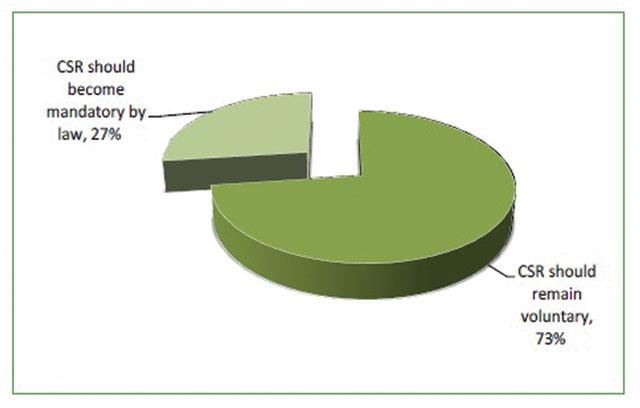You are here
Corporate Social Responsibility employees show low knowledge of best practices
By Dana Al Emam - Jul 01,2015 - Last updated at Jul 01,2015
AMMAN — There is a gap between international best practices governing corporate social responsibility (CSR) and the degree to which concerned employees in local corporations are aware of these practices, according to a study.
Carried out by the Social Development Ministry, the study sought to establish a theoretical framework concerning CSR that is based on best practices as defined by experts.
“It also aimed to measure the knowledge and awareness of workers in this field regarding fundamental CSR topics,” the ministry’s spokesperson and study co-author, Fawwaz Ratrout, told The Jordan Times on Wednesday.
The study included a group of 50 CSR employees evenly working in private, public and voluntary sectors, with around 90 per cent of whom in administrative positions, the official said in a phone interview.
Under the recent study, participants were asked to define CSR and mention its fundamentals, fields and types, and to comment on its implementation in Jordan.
Results showed that participants provided “unclear and too broad” definitions of CSR, with the majority excluding voluntary entities from their responsibility, he said.
Also, the surveyed group associated CSR only with the social field, excluding the economic and environmental fields, with complete lack of knowledge regarding internal CSR, which can be exercised inside the corporation.
Responses to the study’s questions were influenced by a sense of morality rather than a systemised implementation of familiar international best practices, said Ratrout, who added that sometimes the two do not fully correspond.
Furthermore, participants had “negative” views on CSR implementation in Jordan, as they said there are no rules governing CSR, which makes related activities “haphazard”.
They also referred to CSR as “unsustainable charity donations” that often overlap with corporations’ economic interests such as tax exemptions, adding that CSR services are not based on studies of the actual needs of local communities.
“Amendments to regulations governing CSR are encouraged to consider the findings of this study, in order to better prepare for effective regulations that address the mentioned challenges,” Ratrout concluded.
The CSR advisery committee, formed by the Prime Ministry has adopted the recommendations of the study, according to the official.
Related Articles
Corporate Social Responsibility (CSR) is still "failing to deliver" in a country where economic challenges are getting more chronic and doubled by turmoil, according to economic experts.
AMMAN — Arab business owners operating in the region should “be entrepreneurs, but serve [their] community”, according to a participant in a
As spending on corporate social responsibility (CSR) in Jordan ranges from JD60 million to JD90 million per year, MPs and company representatives in Jordan on Tuesday launched a consultation body to ensure efficiency and avoid duplication in projects.

















